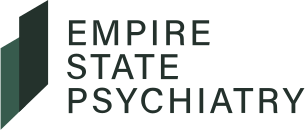What Is ADHD?
Attention-Deficit/Hyperactivity Disorder (ADHD) is a neurodevelopmental condition that affects both children and adults. Characterized by symptoms such as inattention, hyperactivity, and impulsivity, ADHD can significantly impact various aspects of life, including academic performance, occupational success, and social relationships. Understanding ADHD involves recognizing its symptoms, appreciating its complexity, and acknowledging the challenges faced by those living with the disorder. Empire State Psychiatry in New York City specializes in diagnosing and treating ADHD.
What Are The Signs And Symptoms of ADHD?
ADHD is typically identified by three primary symptoms: inattention, hyperactivity, and impulsivity. However, how these symptoms manifest can vary widely from person to person.
Inattention
Individuals with ADHD may struggle to sustain attention, follow through on tasks, or organize activities. They might often overlook details, make careless mistakes, or be easily distracted by extraneous stimuli. Forgetfulness and difficulty completing tasks are common, leading to challenges in personal and professional settings.
Hyperactivity
This symptom is more common in children but can persist into adulthood. It involves excessive fidgeting, an inability to stay seated, and a general sense of restlessness. Hyperactive individuals may feel the need to be constantly moving or talking, which can disrupt classroom settings, workplaces, and social environments.
Impulsivity
Impulsivity in ADHD can lead to hasty actions without forethought, difficulty waiting for turns, and frequent interruptions during conversations. This can affect social interactions, as impulsive behavior may be perceived as rude or disruptive, further complicating relationships.
Medication For ADHD
While ADHD can be managed through a combination of strategies, medication remains one of the most used and researched approaches to alleviate its symptoms. This article provides an overview of the different types of medications used to treat ADHD, how they work, and considerations for their use.
Stimulant ADHD Medications
Stimulant medications are the most widely prescribed and studied treatments for ADHD. These medications increase the levels of certain neurotransmitters, particularly dopamine and norepinephrine, in the brain. These chemicals play a key role in attention, focus, and impulse control.
- Methylphenidate-Based Stimulants: This class includes medications such as Ritalin, Concerta, and Metadate. Methylphenidate is known for its efficacy in improving attention and reducing impulsivity and hyperactivity. These medications are available in short-acting, intermediate-acting, and long-acting formulations, allowing for flexibility in dosing based on individual needs.
- Amphetamine-Based Stimulants: Medications such as Adderall, Vyvanse, and Dexedrine fall into this category. Amphetamines are also highly effective in managing ADHD symptoms and, like methylphenidate-based stimulants, are available in various formulations to suit different treatment plans.
Non-Stimulant ADHD Medications
For individuals who do not respond well to stimulant medications or who may experience significant side effects, non-stimulant medications offer an alternative. These medications work differently from stimulants but can still be effective in managing symptoms of ADHD.
- Atomoxetine (Strattera): Atomoxetine is a selective norepinephrine reuptake inhibitor (NRI) that increases norepinephrine levels in the brain. Unlike stimulants, which work relatively quickly, atomoxetine may take several weeks to reach its full therapeutic effect. It is often considered when stimulants are not suitable or have been ineffective.
- Guanfacine (Intuniv) and Clonidine (Kapvay): These medications were initially developed to treat high blood pressure but have been found to be effective in managing ADHD symptoms, particularly in reducing hyperactivity and impulsivity. They work by affecting receptors in the brain that help regulate attention and behavior.
Considerations For ADHD Medication
While medication can be highly effective in managing ADHD symptoms, it is not a one-size-fits-all solution. The decision to use medication should be made carefully, considering the individual’s unique circumstances, the severity of symptoms, and potential side effects.
- Side Effects: Common side effects of stimulant medications include appetite suppression, sleep disturbances, and increased heart rate. Non-stimulants may cause side effects such as fatigue, dizziness, and mood changes. It is important to monitor these effects and communicate with a healthcare provider to adjust the treatment plan as needed.
- Individual Response: Not every individual with ADHD will respond to medication in the same way. Some may relieve symptoms significantly, while others may experience minimal benefit or intolerable side effects. Finding the right medication and dosage often requires a period of trial and error under the supervision of a healthcare provider.
- Long-Term Considerations: ADHD is a chronic condition, and while medications can manage symptoms effectively, they do not cure the disorder. Long-term use of drugs may be necessary, and ongoing evaluation is essential to ensure that the treatment remains appropriate and effective over time.
Therapy For ADHD
Attention-Deficit/Hyperactivity Disorder (ADHD) is a condition that extends beyond mere difficulties with attention or impulsivity; it encompasses a wide range of challenges that can affect every aspect of an individual’s life. Therapy for ADHD provides essential strategies and skills that empower individuals to cope with their daily challenges. Individuals with ADHD can learn to manage their symptoms better, improve their relationships, and enhance their overall quality of life.
Cognitive Behavioral Therapy (CBT) For ADHD
Cognitive Behavioral Therapy (CBT) is one of the most widely used therapeutic approaches for ADHD. CBT focuses on identifying and changing negative thought patterns and behaviors that contribute to the difficulties experienced by individuals with ADHD.
- Managing Impulsivity and Hyperactivity: CBT helps individuals recognize impulsive behaviors and develop strategies to control them. For example, a person might learn techniques to pause and think before acting, which can reduce impulsive decisions that lead to negative consequences.
- Improving Organizational Skills: Individuals with ADHD often struggle with organization and time management. CBT can help them develop practical skills, such as breaking tasks into smaller, manageable steps, using calendars and reminders, and setting realistic goals.
- Enhancing Self-Esteem: Living with ADHD can sometimes lead to feelings of frustration, inadequacy, and low self-esteem. CBT addresses these emotional challenges by helping individuals reframe negative thoughts, recognize their strengths, and build confidence in their abilities.
Behavioral Therapy For ADHD
Behavioral therapy is another practical approach for managing ADHD, particularly in children. This type of therapy focuses on modifying specific behaviors through reinforcement techniques.
- Positive Reinforcement: Behavioral therapy often involves rewarding positive behaviors to encourage their repetition. For example, a child who completes their homework on time might receive praise or a small reward. Over time, this positive reinforcement can help establish new, healthier habits.
- Parent Training: Behavioral therapy often includes training for parents of children with ADHD. This training helps parents learn strategies to effectively manage their child’s behavior, such as setting clear expectations, using consistent discipline, and reinforcing positive behaviors.
- Developing Coping Strategies: Behavioral therapy helps individuals with ADHD develop coping strategies for managing their symptoms in different settings, such as school, home, or work. These strategies might include using checklists, breaking tasks into smaller steps, and practicing relaxation techniques to reduce stress.
Social Skills Training For ADHD
ADHD can sometimes affect social interactions, leading to difficulties in forming and maintaining relationships. Social skills training is a therapeutic approach designed to help individuals with ADHD improve their interpersonal skills.
- Understanding Social Cues: Social skills training helps individuals recognize and interpret social cues, such as body language, tone of voice, and facial expressions. This can lead to more successful interactions and better relationships with peers, family members, and colleagues.
- Improving Communication Skills: Therapy can teach individuals with ADHD to communicate more effectively, such as taking turns in conversation, listening actively, and expressing themselves clearly. These skills are crucial for building and maintaining positive relationships.
- Managing Conflicts: Social skills training also includes strategies for resolving conflicts and handling disagreements constructively. This can reduce the likelihood of social isolation or difficulties in relationships.
Challenges Faced By Individuals With ADHD
Living with ADHD can be challenging, especially when those around the individual do not sufficiently understand the condition. Children with ADHD may struggle academically, not due to a lack of intelligence, but because of difficulties in focusing and staying on task. This can lead to frustration, low self-esteem, and behavioral issues.
Adults with ADHD often face difficulties in professional settings. They may find it hard to stay organized, meet deadlines, or maintain consistent performance, affecting career advancement and job satisfaction. Additionally, ADHD can strain relationships, as partners, family members, and friends may misinterpret symptoms as laziness, irresponsibility, or lack of care.
The Importance of Early Identification And Support
Recognizing the signs of ADHD early in life can lead to better outcomes. Early identification allows for the implementation of strategies that can help individuals manage their symptoms and lead successful lives. Understanding ADHD is crucial not only for those who live with the disorder but also for those who interact with them daily—whether as educators, employers, family members, or friends.
Education and awareness are vital in supporting individuals with ADHD. By understanding the nature of the disorder, society can better accommodate the needs of those affected, reducing stigma and fostering environments where individuals with ADHD can thrive.

